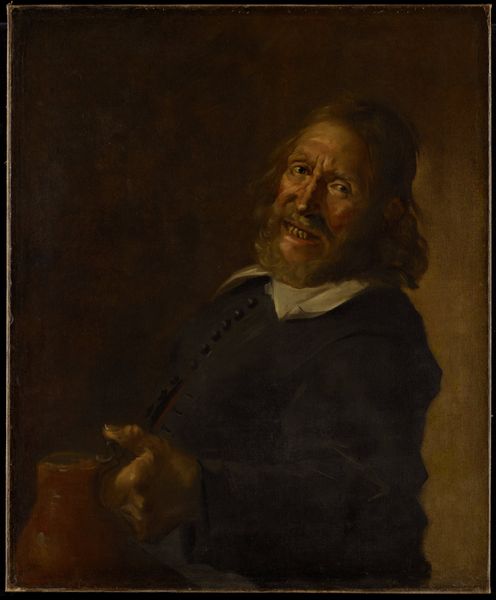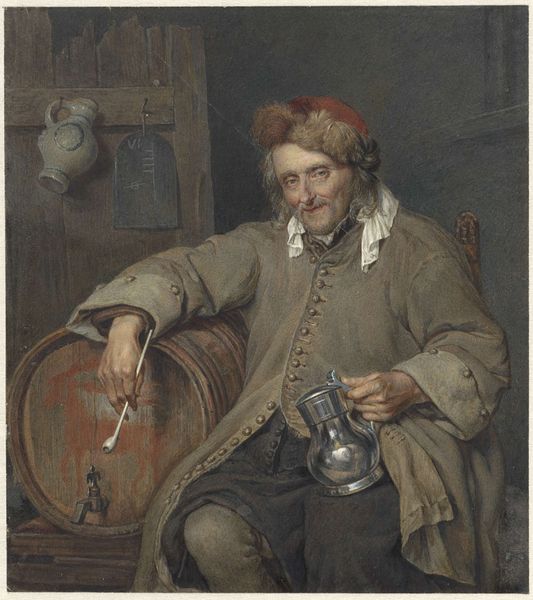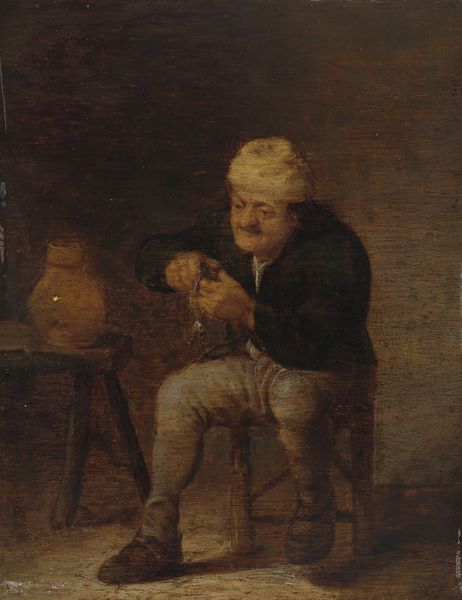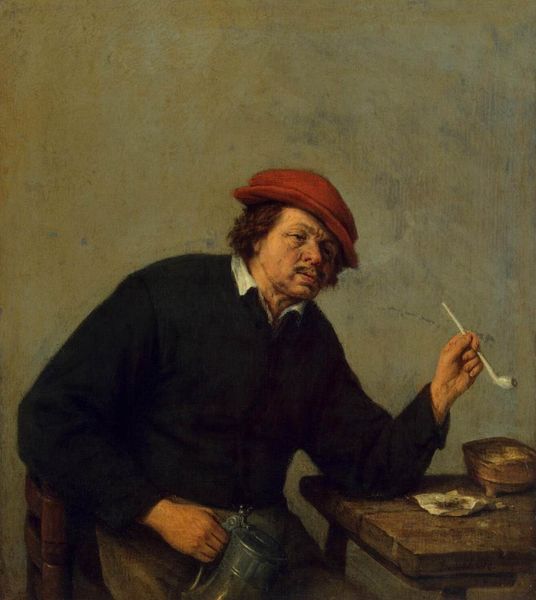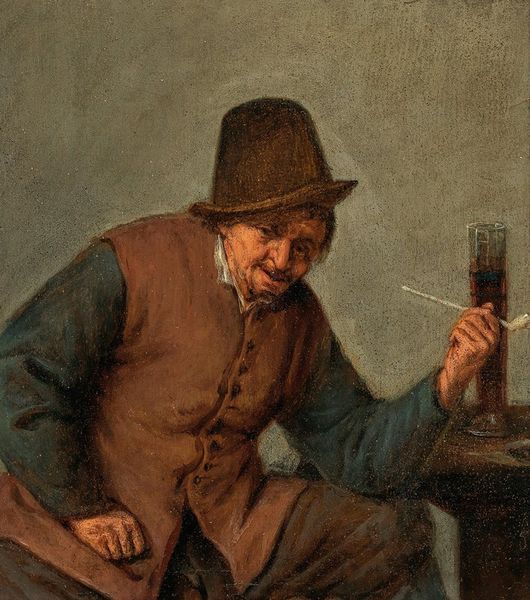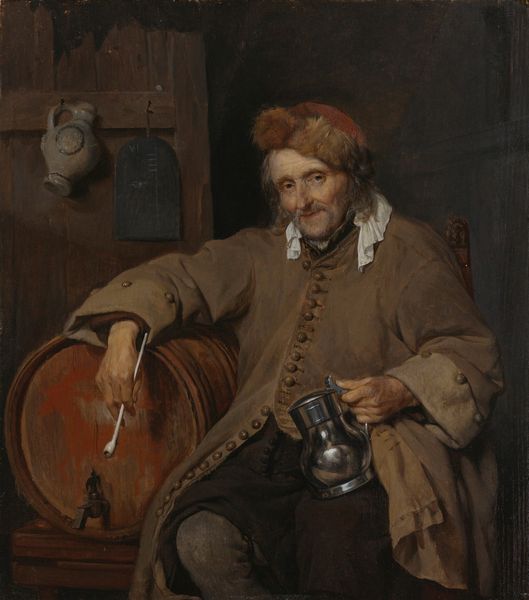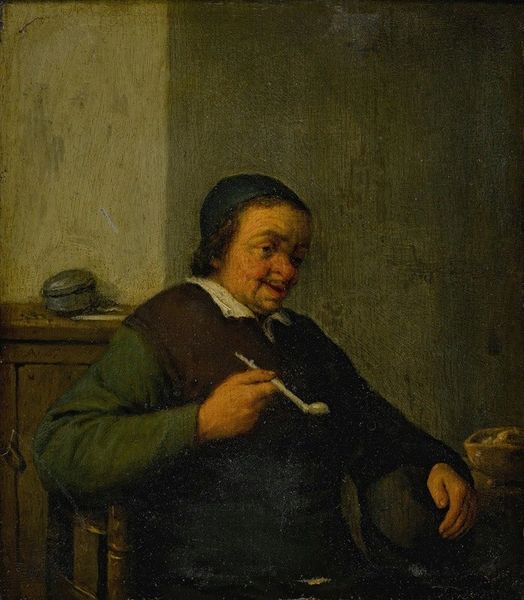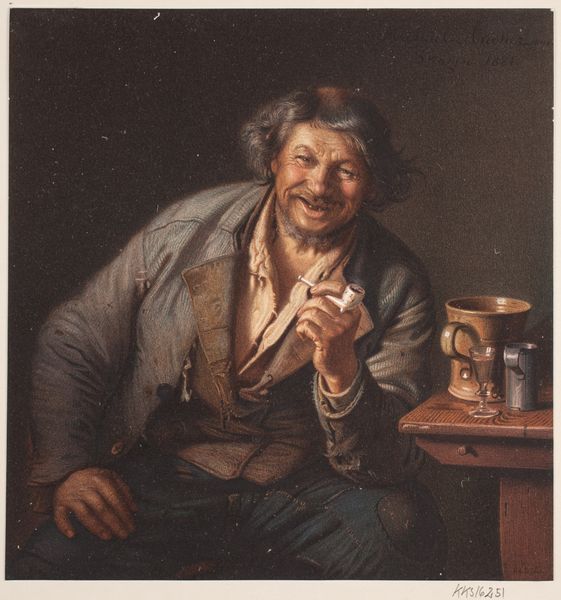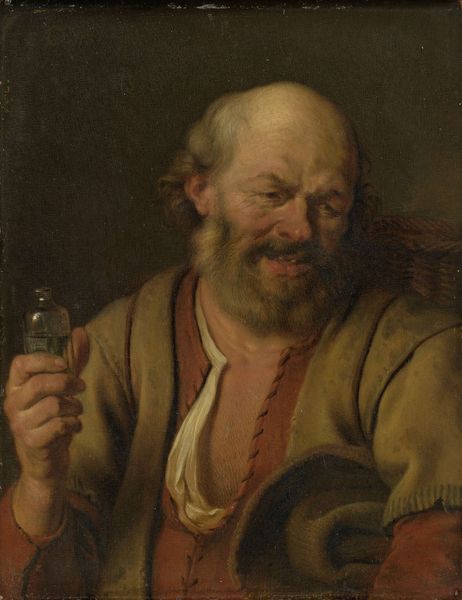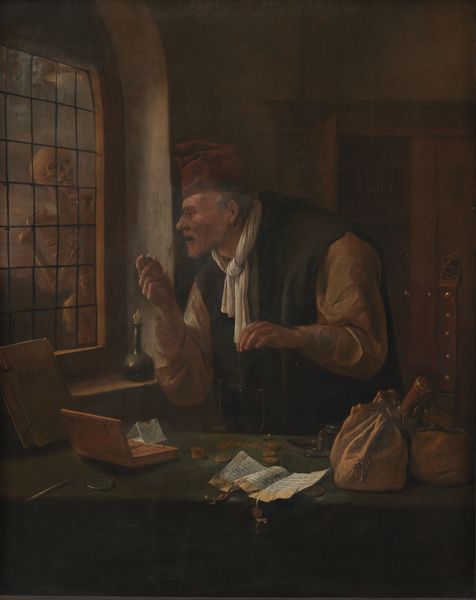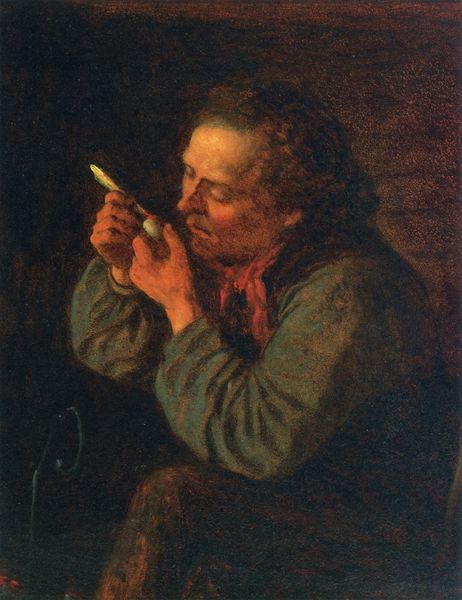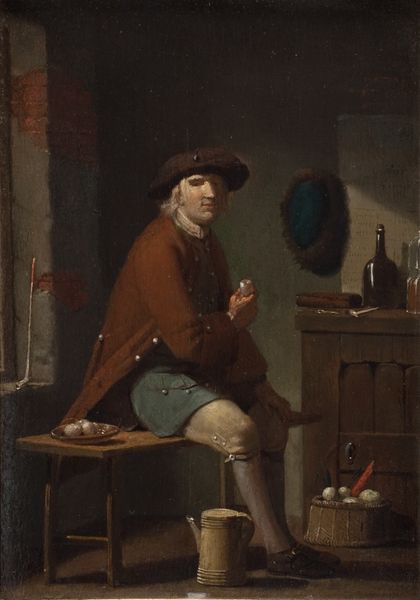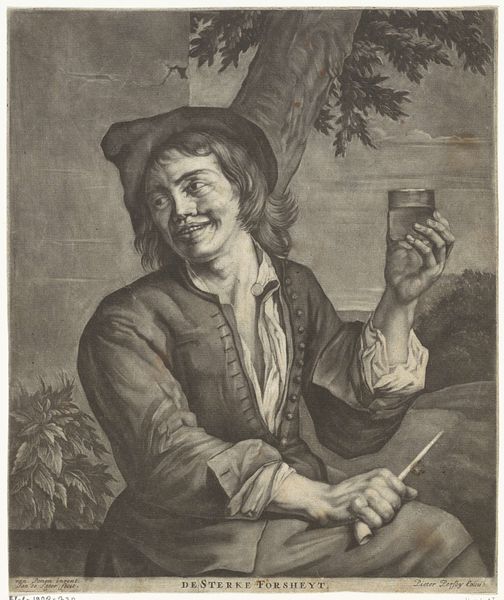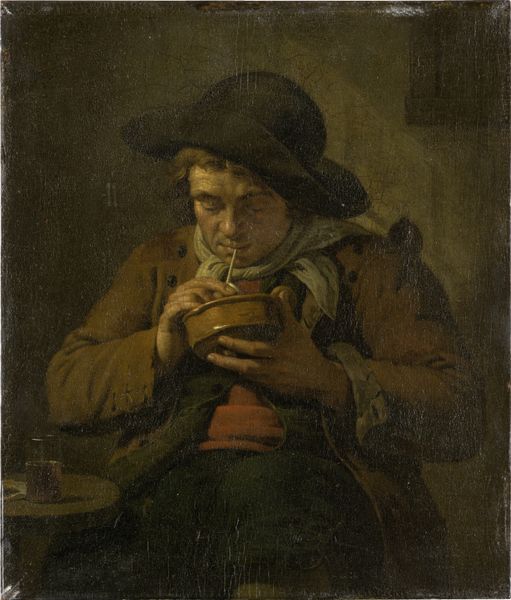
painting, oil-paint
#
portrait
#
baroque
#
painting
#
oil-paint
#
genre-painting
Dimensions: height 71.5 cm, width 60.9 cm, thickness 3.8 cm, depth 4.1 cm
Copyright: Rijks Museum: Open Domain
Curator: Good morning, I'm thrilled to delve into Antonio Zanchi’s rather unusual work from the 17th century, entitled “Man with Urine Bottle in his Hand”, now housed at the Rijksmuseum. Editor: Well, “unusual” is one word for it! My first impression is of deep, almost unsettling contemplation. The man's focus on that vial is intense, shadowed, like he's holding the secrets of life itself. Curator: Indeed! This genre painting, likely dating from the mid-1600s to 1674, really shows us the crucial role of uroscopy during that time. Doctors often diagnosed ailments based on the color, smell, and even sediment found in urine. Editor: Ah, so the urine bottle symbolizes the limits of our understanding about the body and well-being, a crude precursor to modern medicine. The murky palette enhances the somber mood, doesn’t it? He seems burdened by his task. Curator: It does, but note the details. His simple head covering suggests the working class, possibly a barber-surgeon, not a highly educated physician, bringing medicine to the people. His serious look would likely suggest deep reflection. Editor: A more grounded interpretation… perhaps less burdened and more of a conscientious attempt at making a diagnosis. I wonder if viewers at the time considered the practice noble or almost unsavory. The politics of healing, so to speak. Curator: It surely evoked a mix of feelings, I agree! This form of medical investigation was common in public spaces, making health diagnoses highly visible and discussable. So maybe Zanchi is reminding us that even private things are connected to society. Editor: It's fascinating how a simple bottle, now rendered in oil, reflects this era’s public concerns. There is some timelessness to his search for knowledge or perhaps it is a cautionary statement about man’s vulnerability. Either way it holds an image of perseverance! Curator: I agree. Considering the history, it is an example of the enduring human drive to diagnose, find answers, and search for comfort when faced with illness. Editor: A compelling glimpse into the medical past, through the eyes of a contemplative observer!
Comments
No comments
Be the first to comment and join the conversation on the ultimate creative platform.
